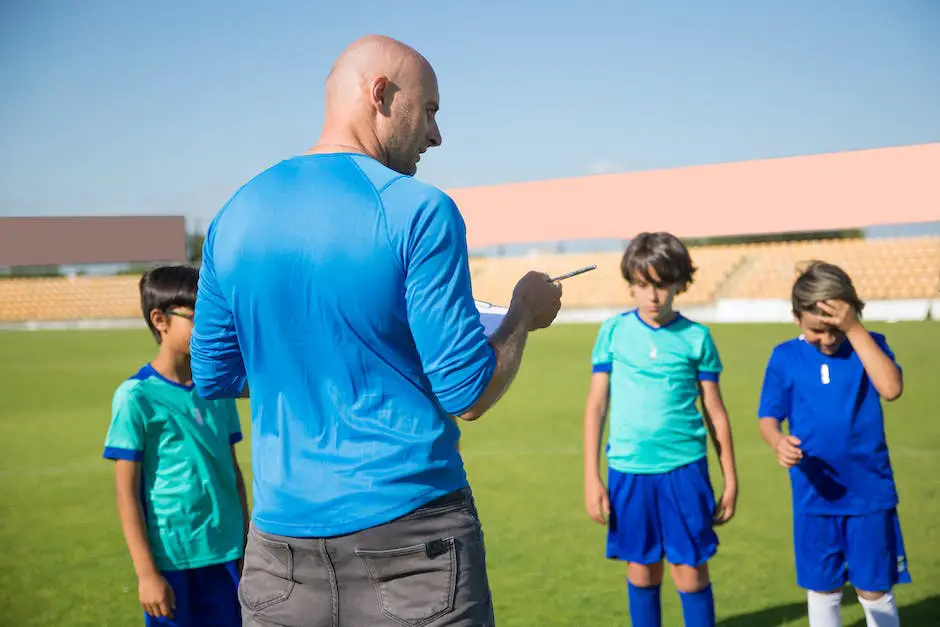Youth Football Development Explained
Youth football development is a crucial aspect of nurturing future talents and fostering a nation’s overall success in the sport. This article delves into the significance of well-structured development programs, and the vital components that contribute to the holistic growth of aspiring young football players.
Importance of Youth Football Development
Youth football development programs play a crucial role in nurturing the skills and talents of young athletes and help shape the future of the sport. By offering well-structured programs, these initiatives expose children to a high level of coaching, training, and competition at a young age. This not only accelerates their growth as football players but also instills discipline, teamwork, and a strong work ethic that can carry them throughout their lives. Investing in youth development means focusing on building a strong foundation for the future of the sport, as well as contributing to a nation’s overall football success.
A solid youth football development program provides a clear pathway for young athletes to progress from the grassroots level to the professional ranks. This structure allows talented individuals to stand out and receive the necessary resources and support to hone their skills further. Additionally, it creates a talent pool for clubs and national teams to scout from, making it an invaluable asset in the growth and improvement of a nation’s football prowess. Beyond the skill development, having such programs available also helps to increase interest in the sport, attracting more young people to participate, thus expanding the overall talent pool.
Youth football development programs play a key role in fostering an inclusive environment for aspiring players, regardless of their socio-economic background. By providing equal opportunities for every young talent, these programs contribute to reducing social inequalities and promoting a sense of unity and social cohesion through the love of the sport. In this way, youth football development goes beyond the pitch, having a significant impact on the communities in which these young athletes live. Overall, a strong youth football development program not only shapes skilled athletes but also builds character, fosters unity, and creates a positive influence on society.

Initiatives and Programs
The Importance of Talent Identification Programs in Youth Football Development
Talent identification programs play a vital role in youth football development by discovering promising players at an early stage and providing them with the necessary support to improve their skills. Numerous national and regional programs participate in this process, conducting regular scouting and trials for young players with potential. For instance, the U.S. Soccer Development Academy focuses on scouting talent from across the nation, offering a platform for identified players to refine their skills and compete in elite-level competitions. Through these initiatives, youth players have the opportunity to learn from experienced coaches and receive tailored training, preparing them for high-level competition and enhancing the overall standard of football in the country.
Youth Football Academies and Clubs
Youth football academies and clubs also focus on player development from the grassroots level to elite tiers. By providing a structured environment and curriculum, these academies ensure that players receive appropriate training according to their age and skill level. Some academies collaborate with schools to introduce football to students as a part of their physical education program. This not only encourages young players to participate in the sport but also aids in discovering hidden talents. Partnerships between professional clubs and local grassroots clubs can further enhance the quality of training and facilities available to young players, supporting them in realizing their full potential.
Investments in Community-Based Programs
Investments in community-based programs provide additional support to help youth football development flourish in the United States. Initiatives like the Grassroots Soccer program, funded by organizations such as the U.S. Soccer Foundation, aim to strengthen the sport from the ground up by providing equipment, grants, and training resources to underserved communities. These programs are designed to create an inclusive environment and promote diversity in youth football, ensuring that players of all backgrounds have a chance to excel in the sport.

Coaching and Training
Youth Football Development and Coaching
In conjunction with community-based programs, effective coaching is crucial in shaping the players’ skills and understanding of the game. Coach education and licensing are fundamental to ensuring that youth football coaches possess the knowledge and competence needed to teach the sport effectively. The United States Soccer Federation (USSF) provides various coaching license levels, starting with the Grassroots courses and progressing to more advanced A, B, and Pro licenses. As coaches advance through the licensing tiers, they receive extensive instruction on sports science, player psychology, and technical and tactical aspects of the game. Together, these efforts contribute to the continuous improvement and expansion of youth football development in the United States.
Coaching Methods and Training Techniques
Coaching methods and training techniques employed in youth football development primarily cater to the unique needs of young athletes. Age-appropriate training techniques focus on gradually developing players’ technical skills, decision-making abilities, and tactical awareness while fostering a love for the game. Coaches should also follow the principle of long-term player development, which emphasizes the importance of a gradual and steady progression of skills and knowledge over the player’s growth period. This can be achieved through a combination of small-sided games, skill challenges, and targeted technical exercises.
Creating a Positive and Nurturing Environment
In order to foster the growth and success of youth football players, it is essential for coaches to create a positive and nurturing environment. This includes focusing on the technical and tactical aspects of the game, while also emphasizing a growth mindset and providing constructive feedback. By doing this, coaches can encourage self-confidence, resilience, and a strong work ethic in their young athletes. Moreover, it is important for coaches to prioritize the overall well-being and safety of their players, addressing areas such as proper nutrition, injury prevention, and mental health support. As mentors and role models, youth football coaches play a significant role in shaping not only the athletic future of their players, but also their personal development and values.

Physical and Mental Development
As part of their holistic approach, youth football development programs emphasize the importance of improving players’ physical fitness alongside their skills and mindset. These programs incorporate a variety of exercises and drills specifically tailored to support players’ growth and ability levels. Strength training, agility drills, and cardiovascular activities are included to enhance muscle development, flexibility, and endurance. Nutrition is also a vital aspect of these programs, with educational sessions designed to inform young athletes about the importance of maintaining a balanced and healthy diet. By addressing the physical, mental, and emotional needs of players, youth football development programs aim to ensure that athletes are in the best possible shape to perform at their highest level and minimize the risk of both acute and chronic injuries.
Injury prevention is another critical component of youth football development programs. Trainers and coaches emphasize teaching proper techniques, especially in tackling to reduce the risk of injuries such as concussions. Additionally, providing young athletes with adequate rest and recovery periods is crucial to reduce the risk of overuse-related injuries, such as muscle strains, stress fractures, and tendonitis. Appropriate warm-up and cool-down routines, as well as stretching exercises, are taught to help reduce muscle tightness and increase flexibility.
Mental development is just as crucial as physical training in youth football development programs. Building strong mental strength, discipline, and teamwork skills play a significant role in a player’s overall success and longevity in the sport. Programs often consist of workshops and activities focusing on mindset, motivation, decision-making, and concentration. Sportsmanship is another vital value instilled in young athletes, as they are taught to respect their opponents, coaches, officials, and teammates. By fostering these mental skills and emphasizing sportsmanship, youth development programs equip players with essential life skills that extend beyond the football field.

Pathways and Opportunities
Youth Football Development
Offering a variety of pathways and opportunities for young players to grow and showcase their skills at different levels, youth football development helps players sharpen their abilities and gain valuable experience against other teams through local and regional competitions. Many schools and clubs host local leagues and tournaments, serving as an ideal stepping stone for aspiring footballers. As players progress in their skills and abilities, they may have the chance to represent their region in higher-level tournaments, furthering their exposure to the world of competitive football and building upon the mental development and sportsmanship taught in their earlier programs.
National and International Competitions
National and international competitions present young athletes with even greater challenges and opportunities to showcase their talent on a larger stage. Participating in these higher level events can not only offer a platform for players to be noticed by scouts and collegiate coaches, but also provide them with invaluable experience competing against the best players from different parts of the country or even the world. Scholarships and professional contracts are often awarded to the most outstanding performers, providing financial support and access to further football education and training.
Youth Football Development Programs
Besides competing in various leagues and tournaments, young players can also benefit from attending youth football development camps, clinics, and academies. Many professional football clubs and sports organizations run such programs aimed at equipping young athletes with the technical, tactical, and mental skills needed to thrive in the sport. These specialized programs also offer a unique opportunity for players to be evaluated by experienced coaches, opening up the possibility of receiving invitations to join elite development teams or even professional clubs. By taking advantage of these pathways and opportunities, aspiring footballers can maximize their potential and increase their chances of making a successful career in the sport.

Through a comprehensive understanding of the importance of youth football development, we can work hand in hand to ensure the success of the younger generation in the game. Initiatives, programs, and coaching methodologies, as well as a focus on physical and mental growth, assist in creating a fulfilling experience for budding players. Ultimately, providing clear pathways and opportunities not only contribute to the individual growth of players but also strengthen the foundation of football in a nation.
